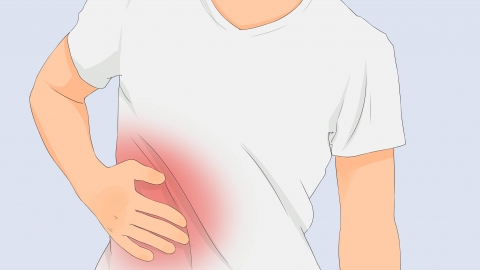What happens if alanine aminotransferase (ALT) levels are elevated?
Generally, elevated alanine aminotransferase (ALT) levels usually indicate abnormal liver function, which may lead to hepatocyte damage, digestive dysfunction, abnormal bilirubin metabolism, decreased liver synthetic function, and discomfort in the liver area. Detailed analysis is as follows:

1. Hepatocyte damage: Alanine aminotransferase is mainly present within hepatocytes. Elevated levels of this indicator often suggest damage or inflammation of hepatocytes. In the early stages, it may manifest only as a mild increase; if not treated timely, the damage may worsen, leading to hepatocyte necrosis and further affecting basic liver functions such as detoxification and metabolism, potentially causing more severe liver lesions.
2. Digestive dysfunction: The liver secretes bile to aid digestion. When ALT levels are elevated, bile secretion may be affected, thereby impairing digestive function. Patients may experience symptoms such as reduced appetite, postprandial abdominal distension, nausea, and aversion to greasy foods.
3. Abnormal bilirubin metabolism: The liver is a key organ in bilirubin metabolism. Elevated ALT levels may be accompanied by impaired bilirubin metabolism, leading to increased bilirubin levels in the blood. Patients may develop yellowing of the skin and whites of the eyes (jaundice), and their urine may darken to a tea-like or deep yellow color.
4. Decreased liver synthetic function: The liver is responsible for synthesizing important substances such as albumin and coagulation factors. Persistent elevation of ALT levels may lead to reduced synthetic function of the liver. Patients may experience fatigue and low spirits. Due to insufficient albumin levels, mild edema in the lower limbs may also occur.
5. Liver area discomfort: Elevated ALT levels accompanied by liver inflammation or enlargement may stimulate nerves on the liver capsule, causing discomfort in the liver area. This often manifests as dull, distended, or aching pain in the upper right abdomen, with varying intensity. In some individuals, discomfort may worsen after physical exertion, emotional fluctuations, or eating.
Patients are advised to avoid alcohol consumption and staying up late, reduce intake of high-fat and high-sugar foods, and choose bland, easily digestible meals such as porridge, vegetables, and lean meat. Additionally, maintaining a regular sleep schedule, avoiding medications that may harm the liver, and undergoing regular follow-up liver function tests are recommended.







